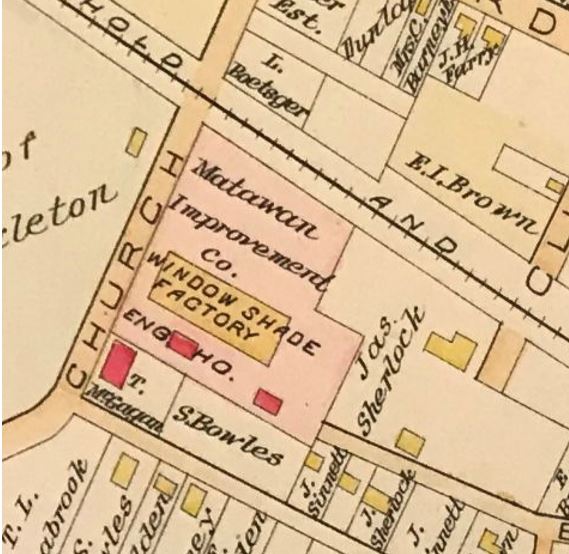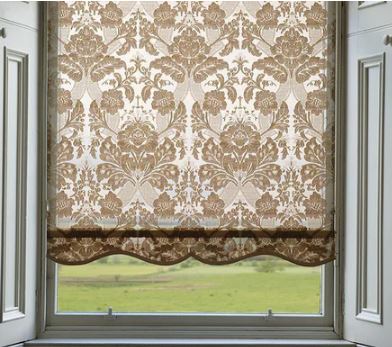In early January of 1887, prominent Matawan businessman Edward I. Brown (1846-1913) organized the Matawan Improvement Company, a joint stock venture incorporated to bring industry to the town. He served as President, supported by Vice President D. G. Ryer, Secretary C.A. Geran and Treasurer C. H. Wardell. On the board of directors with him were the three other officers along with I. Cartan, William Spader, and H. H. Longstreet. Their initial goal was to purchase land and construct a building which would be occupied by the Widow Shade Company of New York, reportedly the largest concern of its kind in the country.
Later that month the company bought tracts of land from Aaron Longstreet, John J. Beers and Margaret Bray. An 1889 map showed the location, with contactor Lewis Brown of Little Silver awarded the contract for the building at a cost of $8,860. Construction of the factory started in early February 1887.
 In August of 1887, the Matawan Improvement Company leased the building to the Standard Window Shade Company for ten years. On April 23, 1887 the Matawan Journal reported that their factory in the Bowery of New York City (113 Worth Street) was moving to Matawan, while the company’s offices and salesrooms would remain there. The principals were listed as Messrs. Winteringham, Patterson and Hubbard.
In August of 1887, the Matawan Improvement Company leased the building to the Standard Window Shade Company for ten years. On April 23, 1887 the Matawan Journal reported that their factory in the Bowery of New York City (113 Worth Street) was moving to Matawan, while the company’s offices and salesrooms would remain there. The principals were listed as Messrs. Winteringham, Patterson and Hubbard.
Although an 1889 map showed the Window Shade factory at that location, it wasn’t there long. From an article in the February 25, 1888 edition of the Matawan Journal, there was an implication of labor unrest with the writer chiding the employees that the money wasted on beer during the possible strike might now come in handy. It went into receivership later that month. In May of 1888, existing stock in the company was sold at a public sale, with some of the proceeds used to settle accounts with the Matawan Improvement Company. It appears the company subsequently operated under the trade name Standard Shade Cloth Company and it still leased the building until September of 1889, when the Atlantic Shade Company of Newark, operated by John F. Pfefferle, took over the lease. No information could be located indicating that the company ever operated there – in April of 1890 Antisell Piano Company took over the building. (Pfefferle died the next year at 41 years of age. His 26-year-old wealthy widow soon remarried, an event much remarked upon by local newspapers.)

NO COMMENTS